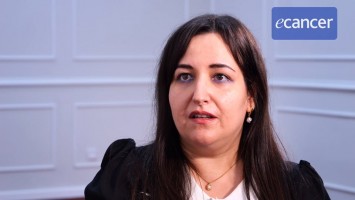Our presentation tomorrow is about screening for cervical cancer over the Republic of North Macedonia. What is important because our screening programme was begun in 2009 as a programme of the Ministry of Health of the Republic of North Macedonia. Electronic health, the same data collection, ten centres of public health of the whole country accepted the Institute of Public Health and general practitioners, laboratories and cytologists.
How has the cervical cancer rate changed in North Macedonia?
When it began, the screening programme, the number of the morbidity and mortality of cervical cancer is on status quo because we know all what’s happened about the cervical cancer. We now call the women from home by telephone, by invitation, to make a cytologist to see the HPV virus. We saw on cytology, of course they are including gynaecologists, general practitioners and laboratories of microbiology or cytology. We began, as the Ministry of Health, to do vaccination of women from twelve years.
What was the problem initially?
At the beginning it was a problem of screening, it’s not so easy. But the screening at the beginning was implemented in about 70% and now I can say that more than 85% is implemented. This includes cytology, HPV virus and vaccination. Gynaecologists, cytologists, data collection and the results are the same as countries in the region. We have decreased the number of the morbidity and mortality of cervical cancer.








